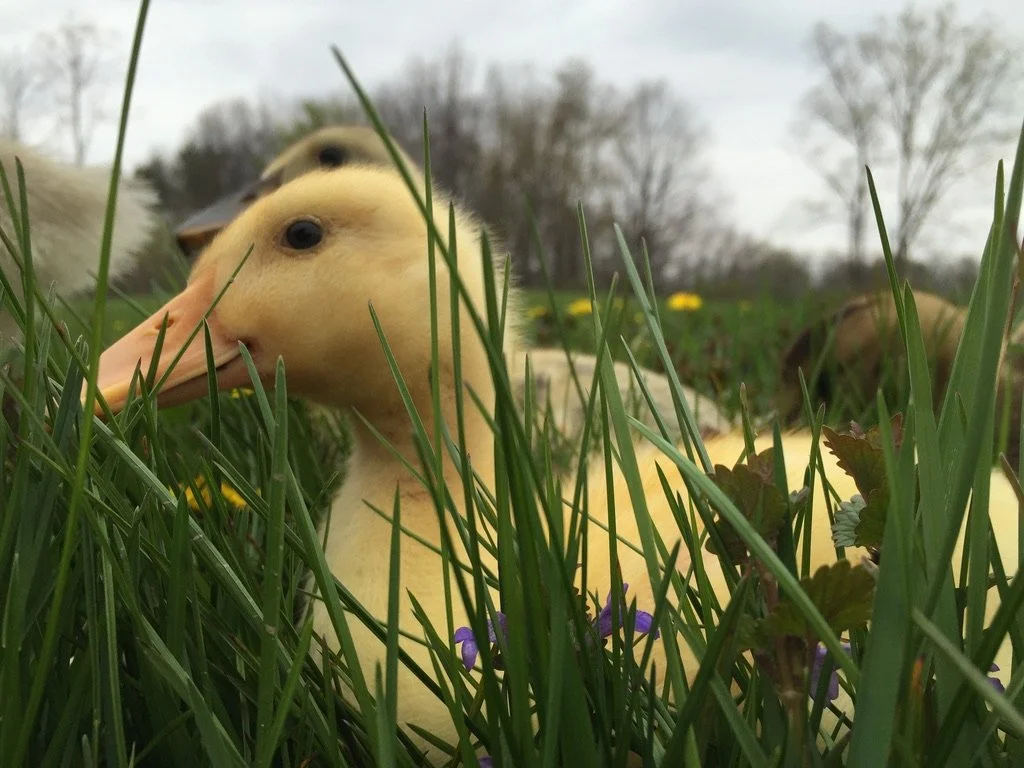Starting your Homestead Journey
Mindset Over Acreage
Homesteading isn't just about acres of land and barns, it's a mindset. Whether you live in a suburban backyard, an urban apartment, or on a small country lot, the heart of homesteading lies in how you approach everyday life. It’s about creativity, resourcefulness, and making the most of what you have. You might only have a windowsill or a corner of the yard, but with the right mindset you can grow herbs, compost kitchen scraps, and start living more sustainably today.
The first step is to welcome curiosity and a can-do attitude. You don’t need a tractor (or even a potting shed) to begin. Consider how you might repurpose items you already own to start a small garden. Homesteading is flexible, if you only have a small patch of grass or a sunny windowsill, that’s your starting point and that’s more than enough.
Ask Yourself Why?
Before rushing into any project, take a quiet moment to ask yourself: Why do I want to homestead? Are you drawn to growing fresh food, becoming more self-sufficient, saving money, or simply living a slower life? Understanding your personal motivations can light the path forward and keep you inspired.
Your “why” might be health-related (enjoying nutrient-rich homegrown veggies), environmental (reducing waste and your carbon footprint), or even social (bonding with family over gardening). Reflecting on your reasons will help you set goals that truly matter to you.
Why do I feel connected to the idea of homesteading?
What am I hoping to gain or learn by doing this?
How do I want homesteading to change my daily routine?
Writing down your reasons or talking about them with a friend or family member can turn vague ideas into clear inspiration. When things get challenging, remembering your “why”, will remind you that homesteading is about fulfillment and joy, not perfection. Let your purpose guide you when you need encouragement.
What You Can Do Right Now
When I first got the itch to start homesteading, I didn’t have land or a greenhouse. Just a tiny backyard in a typical suburban neighborhood, with poor quality/sandy soil. I decided to build a small raised bed along the edge of my deck. Nothing too ambitious, just a few square feet of store bought soil and some seeds. I remember how thrilled I was when those first little snow pea shoots peeked out of the dirt. I checked on them constantly, like they were prized possessions. When I finally harvested my first handful, I couldn’t wait to toss them into a stir fry. I’ll never forget how crisp and fresh they were—sweet, tender, and unlike anything I’d ever tasted from a store. That moment lit a spark that hasn’t gone out since.
No matter where you live or how much time or space you have, there are actions you can take right now to bring homesteading into your life. You don’t have to wait for the perfect garden plot or the ideal moment, start with what’s in front of you.
Start a simple garden: Even a few pots of herbs on a windowsill or balcony are a great beginning. Basil, mint, and chives are easy herbs to grow in small containers.
Grow microgreens or sprouts: These can be started indoors on a sunny counter. They’re nutritious and a great confidence booster when you harvest them in just a week or two.
Compost kitchen scraps: Begin a small compost bin in a corner or even use a countertop compost container. Even a bucket with worms (vermicomposting) can turn your food scraps into soil gold.
Plan your meals around local produce: Visit a farmer’s market or the grocery’s local section and support nearby farms. Choosing in-season fruits and veggies connects you to the land, even if it’s not your own.
Preserve or ferment food: Try canning, pickling, or fermenting simple recipes like jam, pickles, or sauerkraut. A few jars on a shelf are a big win and a taste of self-sufficiency.
Collect rainwater or reuse water: Place a rain barrel under a gutter if possible, or reuse leftover (non-soapy) water from cooking to water plants. Every drop counts and reduces waste.
Connect with community: Join a local gardening club, community garden, or an online homestead group. Sharing tips, seeds, and encouragement with others can make your journey even more fun and social.
Learn a new skill: Read a book or watch an online tutorial on something that interests you, gardening, chicken care, sewing, or DIY. Try out one new tip each week and see how it goes.
These small steps might seem tiny at first, but together they add up. Pick one or two to start with this week. Before you know it, you’ll be building confidence through each successful little project.
Small Steps, Big Changes
Big homestead dreams start with small, doable tasks. Instead of feeling overwhelmed by goals like “plant an entire vegetable garden” or “raise backyard chickens right away,” break everything into manageable pieces. This mindset keeps things fun and stress-free. Also be careful to avoid paralysis from analysis, just start putting plans into action is small bites.
Set mini goals: For example, instead of “grow vegetables,” try planting three tomato seedlings in a pot this weekend.
Celebrate tiny victories: Did your basil sprout its first leaf? That’s a win! Harvesting even a handful of salad greens? Another win.
Gradual expansion: Once your tomatoes are growing well, maybe next season add a pepper plant or two. Slowly add tools like a small spade or watering can as you find you need them.
Work with the seasons: Homesteading aligns with nature. In spring you might start seeds or organize tools; in summer you water and watch things grow; in fall you harvest and preserve. Each season offers its own small step and satisfaction.
Rotate chores: Spend a little time each day or week on different tasks, weed for five minutes here, water for a few minutes there. These short routines add up to a well-cared-for homestead.
Once I bought a place with some property, things really started to open up. I began with just a few mail order ducks, mostly for fun. But as I got more comfortable, I started wondering what it would be like to hatch some of their eggs. I bought a small incubator, not really knowing what to expect. The first time I saw those tiny ducklings break through their shells, it was pure magic, I would get up in the middle of the night to go check on their progress. Before long, I found myself hatching little batches and even selling some of the ducklings to other local families. It felt like a real turning point—what started as a small hobby was now something I could grow into a part of my lifestyle.
This philosophy of small steps not only keeps you motivated, it makes homesteading feel more manageable and enjoyable. Before long, your little efforts start to bring about noticeable, positive changes: your kitchen runs on homegrown herbs, your compost bin shrinks the trash you throw out, or you find yourself happily tending plants and feeling proud.
Learn As You Go
No one expects you to be an expert on day one. Homesteading is a lifelong learning journey. Be ready to experiment, make mistakes, and learn from them. Each attempt, success or flop, teaches you something valuable.
Ask questions: Talk to neighbors who garden, join local community garden groups or online homesteading forums, and read books or watch videos by people in similar living situations. There’s so much collective wisdom to tap into.
Use failures as lessons: Maybe that squash plant didn’t survive the summer heat, next time, try a shade cloth or a different variety. If a batch of jam didn’t come out well, tweak the recipe. Each “oops” is just data for next season’s success.
Adapt to your environment: Notice what grows well in your space and climate. If you live in a shady apartment, leafy greens or mushrooms might thrive better than sun-loving peppers. Learn where the sunniest spot is or how rainwater flows in your yard.
Stay flexible: Your space, time, or resources may change. Maybe you move to a new place or rearrange your garden. Each location offers new opportunities, adapt your plans accordingly and see it as part of the adventure.
Every skill you pick up, gardening, preserving, animal care, or even DIY carpentry, builds confidence. Remember, each season is a teacher, and your patience pays off when your hard work begins to show results. Keep a sense of humor and stay curious, you’ll be amazed at what you learn along the way.
The Beauty of Slowing Down
One of the most rewarding gifts of homesteading is the chance to slow down and savor life’s simple rhythms. When you plant a seed and watch it grow over weeks, your whole pace changes. You start noticing the little things: the feel of soil on your fingers, the early morning bird songs, the smell of fresh herbs on the breeze.
I grew to love getting up in the morning while the air was still cool and the light soft. One of my favorite parts of the day became heading out to check on the animals. There’s something peaceful about those early moments when the world is just waking up. I especially enjoyed opening the chicken coop and watching the hens come bursting out, ready to scratch and peck and start their day. It was such a simple thing, but it filled me with a sense of calm and connection that I had never experienced before.
Slowing down doesn’t mean doing less; it means paying attention to how you do what you do. Whether you’re kneading dough from scratch, pulling weeds with your hands, or sharing a meal made from your garden, approach each task with intention. This mindful pace can reduce stress and reconnect you with nature and loved ones.
At first, you might feel impatient, plants don’t grow overnight! But soon you’ll find joy in the waiting, the nurturing, and the cycles of nature. Savor a homemade meal a little more, breathe a bit deeper when outside, and find grounding in the simple acts of growing and creating. Homesteading invites you to slow down and find satisfaction in the process, not just the end result.
Starting your homestead journey is about embracing a mindset and a community as much as it is about gardens and animals. With curiosity, small steps, and patience, anyone can begin. Keep reflecting on your motivations, celebrate each small success, and trust that you’ll learn and grow along the way. Your adventure has already begun.



